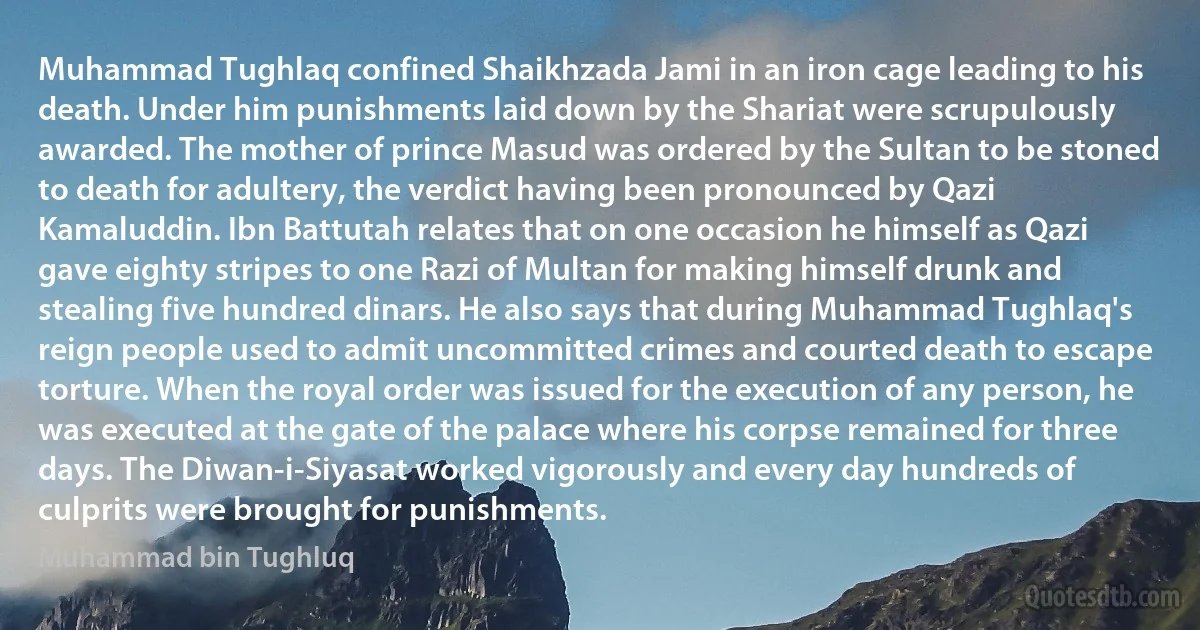Muhammad bin Tughluq quotes
Muhammad ibn Tughlaq "led forth his army to ravage Hindostan. He laid the country waste from Kanauj to Dalmau [on the Ganges, in the Rai Baréli District, Oudh], and every person that fell into his hands he slew. Many of the inhabitants fled and took refuge in the jungles, but the Sultan had the jungles surrounded, and every individual that was captured was killed.”.

Muhammad bin Tughluq
Muhammad Tughlaq always preferred foreign Muslims to Indians for appointment as officers. The rebellion of Ain-ul-mulk Multani (1339) during his reign was a symptom of the resentment felt by the India-born nobles against this policy of prejudice.... Foreign nobles looked down upon Indian Muslim nobles, and considered them as ‘lowborn', although not all foreign Muslims were of high lineage.

Muhammad bin Tughluq
Under Muhammad Tughlaq, wars and rebellions knew no end. Even an enhancement of land-tax ended in massacres in the Doab. Many more perished on the way when the capital was shifted to Daulatabad. His Qarachal expedition cost him a whole army. His expeditions to Bengal, Sind and the Deccan, as well as ruthless suppression of twenty-two rebellions, meant only depopulation.15 From all accounts it is certain that in the thirteenth and first half of the fourteenth century the loss of population was immense.

Muhammad bin Tughluq
The Sultan who is ruling at present has achieved that which had not been achieved so far by any king. He has achieved victory, supremacy, conquest of countries, destruction of the forts of the infidels, and exposure of magicians. He has destroyed idols by which the people of Hindustan were deceived in vain.

Muhammad bin Tughluq
Muhammad bin Tughlaq became notorious for enslaving captives, and his reputation in this regard spread far and wide... Ibn Battuta's eye-witness account of the Sultan's arranging marriages of enslaved girls with Muslims on a large scale on the two Ids confirms the statement of Al Umri. "First of all,” writes he, "daughters of Kafir (Hindu) Rajas captured during the course of the year, come, sing and dance. Thereafter they are bestowed upon Amirs and important foreigners. After this the daughters of other Kafirs dance and sing... the Sultan gives them to his brothers, relatives sons of Maliks etc. On the sixth day male and female slaves are married.” It was a general practice for Hindu girls of good families to learn the art of dancing. It was a sort of religious rite. They used to dance during weddings, festivals and Pujas at home and in temples. This art was turned ravenous under their Muslim captors or buyers.

Muhammad bin Tughluq

